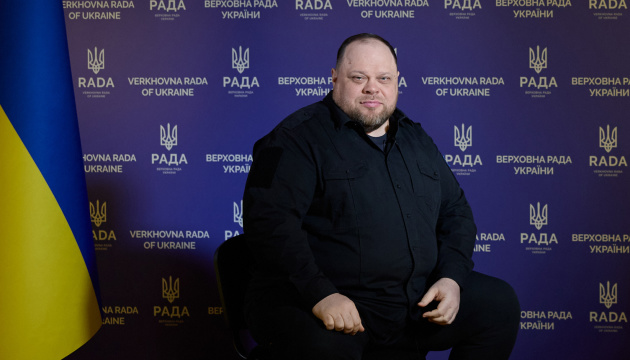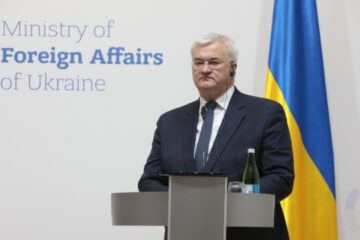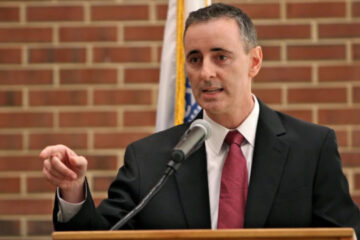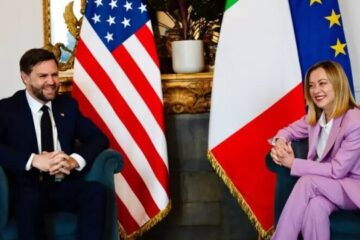How is the Ukrainian parliament working in wartime? The Speaker of the Verkhovna Rada of Ukraine, Ruslan Stefanchuk was talking about this in an exclusive interview with Ukrinform. Parliamentary transparency, anti-corruption effort, legislative initiatives in support of the military and displaced persons, infrastructure recovery and restoration – these matters were the focus of the conversation. The Parliament Speaker additionally shared his thoughts about holding elections during war. Furthermore, the interview focused on Ukraine’s European integration efforts and the development of the domestic defense-industrial sector as priorities of the parliamentary agenda.
[embedded content]
– Parliamentary transparency is one of the key principles. How do you personally ensure transparency of parliamentary activities, what principles are you guided by to achieve this? And how do you feel about the fact that individual people’s lawmakers conduct live broadcasts from the chamber during Parliament sessions?
– I would like to remind you that, according to the Constitution of Ukraine, the Parliament is not just a body of public administration, but is the only body empowered to adopt laws. We have no one above us, no one below us, it is the only legislative body located in one building at 5 Hrushevskoho St. And based on this, in the first days of the full-scale invasion of Ukraine by the Russian Federation, the parliament adopted a resolution stating that we clearly understand that, in the balance between the security and public awareness, we must also ensure the institutional continuity of the parliament as an institution. And a decision was endorsed stating that any information-related things that happen in the parliament should be made public not earlier than an hour after a parliamentary session is over. This is a balanced norm.
But, unfortunately, not all lawmakers who write laws here abide by them. And some of them began making a name for themselves on this. “Hypoholics” is a trendy word that describes such people. I absolutely do not accept this. I understand that the situation has changed in many of its aspects since the beginning of the full-scale invasion, you see that journalists are working here, including those who have the opportunity to receive information directly from sources. But then I would like to ask a question about why journalists are observing this threshold, understanding the level of their responsibility, not just judicial, but also to the future of our country, while individual people’s deputies do not do this. This question, I think, should be addressed also to these people’s deputies, some of whom have earned information capital from this. This, in my opinion, is not ethically correct, because, basically, many others could do it, but only a few do it in contravention of the Verkhovna Rada’s decision.
– Not only from an ethical point of view, but also, Mr. Ruslan, from a security point of view.
– Undoubtedly so.
– At the beginning of the full-scale invasion, there was a restriction that no earlier than two hours afterwards any information about the fact that a parliament session had taken place be made public. Now it seems like everything is going on live. Are there any possibilities to halt this happening, can you as the Speaker of the Verkhovna Rada influence this?
– Let me remind you once again who the Speaker of the Verkhovna Rada is. Because for some reason we believe that the Speaker of the Verkhovna Rada is the director of the parliament. No, this is not so, s/he is simply the first among equals, and I am only entrusted with organizational responsibilities. Because I am exactly the same people’s deputy as anyone else, but I am simply entrusted with certain authorities by the Rada’s rules of procedure, by the law on the status of a people’s deputy, and nothing more. I do everything that depends on me, because I authored this resolution. I continuously urge them two or three times a day to abide by these rules. But, to my great regret, this is probably not a question for the Speaker, but for those people’s deputies who make hype on this. And journalists are absolutely right putting me the question: “If they can, why can’t we?” And this attempt to show off among others is not the best trait inherent in persons who are burdened with the status of a people’s deputy.
– Are there issues with raising the quorum threshold for voting in parliament, and how do you manage to ensure the effective enforcement of the decisions made – those that have been made during the war?
– In the parliament of the ninth convocation — we remember how it happened in all the previous convocations – the button-pushing (or “piano voting; “button pushers” are those MPs who vote on a motion by using own identity card as well as ones belonging to other deputies, or provide their voting card or a duplicate card to a “button-pusher”), and everything else, there are no problems with the button-pushing nor, in principle, problems with the quorum. All the key laws are adopted, voted on, and the most important ones are adopted by the constitutional majority. And, once again, taking this opportunity, I would like to thank the people’s deputies who consciously fulfill their duty, their oath of a people’s deputy, which they took in the hall of the Rada. And this is true, but in our country, it has become trendy to criticize the legislature, the deputies, because this is such a Ukrainian tradition.
– That’s so indeed.
– But I think that history will judge this all correctly – what this parliament has done, and I am absolutely convinced of this. Because this is the first and, God forbid, the only parliament in the history of Ukraine that is working during martial law. Because let’s be honest, I remember the path we have traveled since the first full-scale invasion, and when I arrived from a meeting with the President of Ukraine and opened the door to the hall, my biggest fear was to see a half-empty hall, but none of this happened, everyone was in place, everyone was embarrassed, but everyone was fulfilling their civic and professional duty. And I think that this should also be talked about. And therefore, if we are talking about a quorum, 226+ are there in place, and all the decisions necessary for the country are made.
– You have repeatedly emphasized the importance of foreign diplomacy. Are you favoring the so-called parliamentary tourism, when MPs travel to conferences, forums abroad? Is it known how many MPs are constantly traveling, who is traveling most often, and does anyone monitor and control the effectiveness of these trips?
– You pronounced the most important word at the end of your question. Because for me, the question of any phenomenon, any process that is getting underway, is a question of efficiency. And I place the same demand on myself, that’s why I never go on foreign trips for a week or two, and I definitely know how many schedules there are that I have to meet. And I, for example, have experienced such days when there were about 32 bilateral meetings to be held during two days, but the number is not what matters. What matters is what result you gain from this interparliamentary activity, that you don’t go there for this, as you rightly said, parliamentary tourism, under the guise of some conferences or something else, but there is a result achieved. I can tell you these results absolutely clearly. The first is support of Ukraine, the Ukrainian parliament from all parliaments. The second is an example of how we manage to resolve some issues by exerting pressure on individual governments through parliaments. The third is financial support for Ukraine, because, let’s be frank, decisions on financing Ukraine are made by the parliaments of those countries that provide assistance. As an example, I always recall the letter of parliament speakers to Speaker Johnson, signed by 28 speakers back then, when we had a problem with allocating funds for Ukraine, and that letter had worked out. This is support for Ukraine at the level of our historical memory. I want to remind you that over the past three years of full-scale invasion, we have been able to more than double the number of parliaments that recognized the Holodomor as genocide of the Ukrainian people. In addition, I will remind you of the consolidation of the speakers’ community and other legislators around Ukraine. In particular, at the latest forum in Bucha, the Bucha Summit, we managed to invite and bring yet another, the 21st delegation to Ukraine. Ukraine has never seen anything like this before, does not see anything, and I do not know whether it will see anything like that in the future again, when the speakers and presidents of parliaments came to Ukraine to support us on such a sad day. This is what effective parliamentary diplomacy is like. I want to thank many of our deputies who are really doing this. And I want to especially note our Parliamentary Assembly. The Parliamentary Assembly of the Council of Europe has achieved fantastic results in putting pressure on the Russian Federation from the Council of Europe. The Parliamentary Assembly of NATO, the Parliamentary Assembly of the OSCE, the Parliamentary Assembly of the Black Sea Region. There are lots of things that are being done, and they are being done effectively, without unnecessary hype, but this is the effectiveness that you are talking about.
– Who travels the most and most often, and what guides you to authorize foreign business trips by lawmakers or not authorize? Because representatives of the opposition often complain that you do not give them permission, even though they do a lot of work for the benefit of Ukraine.
– A business trip is an authorization from the Verkhovna Rada of Ukraine to represent particular interests. This is not just a permit to leave the country, it is a representation, which means that a person who goes there must go with a specific purpose. To go in order to represent the interests of the Ukrainian parliament, return and, in conformity with the law, report on what they have done and achieved. Some of the great diplomats have not submitted a single report in three years.
– Who are you talking about?
– In particular, Petro Oleksiyovych Poroshenko has submitted not a single report on what he has been doing for three years while actively representing Ukraine’s diplomatic efforts. There are colleagues who request business trips to one place and then go to another. I also have a question for such colleagues of ours: is this like effective parliamentary diplomacy? So let’s repeat it again: for those who want to leave the country, there are many other ways that are not related to a business trip on behalf of the Verkhovna Rada. A business trip on behalf of the Verkhovna Rada has eight clearly defined reasons: this is an invitation from the speaker of a foreign parliament, this is work in Friendship Groups, participation in Parliamentary Assembly sessions, participation in meetings of European parties, and a number of other miscellaneous, but clearly defined parliamentary requirements. I realize that not everyone is happy about this, but I think that the order should start with the order that you set for yourself. As for those who travel the most, these, of course, are persons who are charged with certain areas of parliamentary activities. In particular, Maria Mezentseva, the person who heads the Parliamentary Assembly of the Council of Europe, it is clear that she has more trips than others. Ivanna Orestivna Klympush-Tsintsadze, who heads the Rada’s European Integration Committee, has more trips, and other colleagues. But I repeat it again: it is crucial that the number of these trips be balanced out, planned and bring benefits for Ukraine and the Ukrainian parliament.
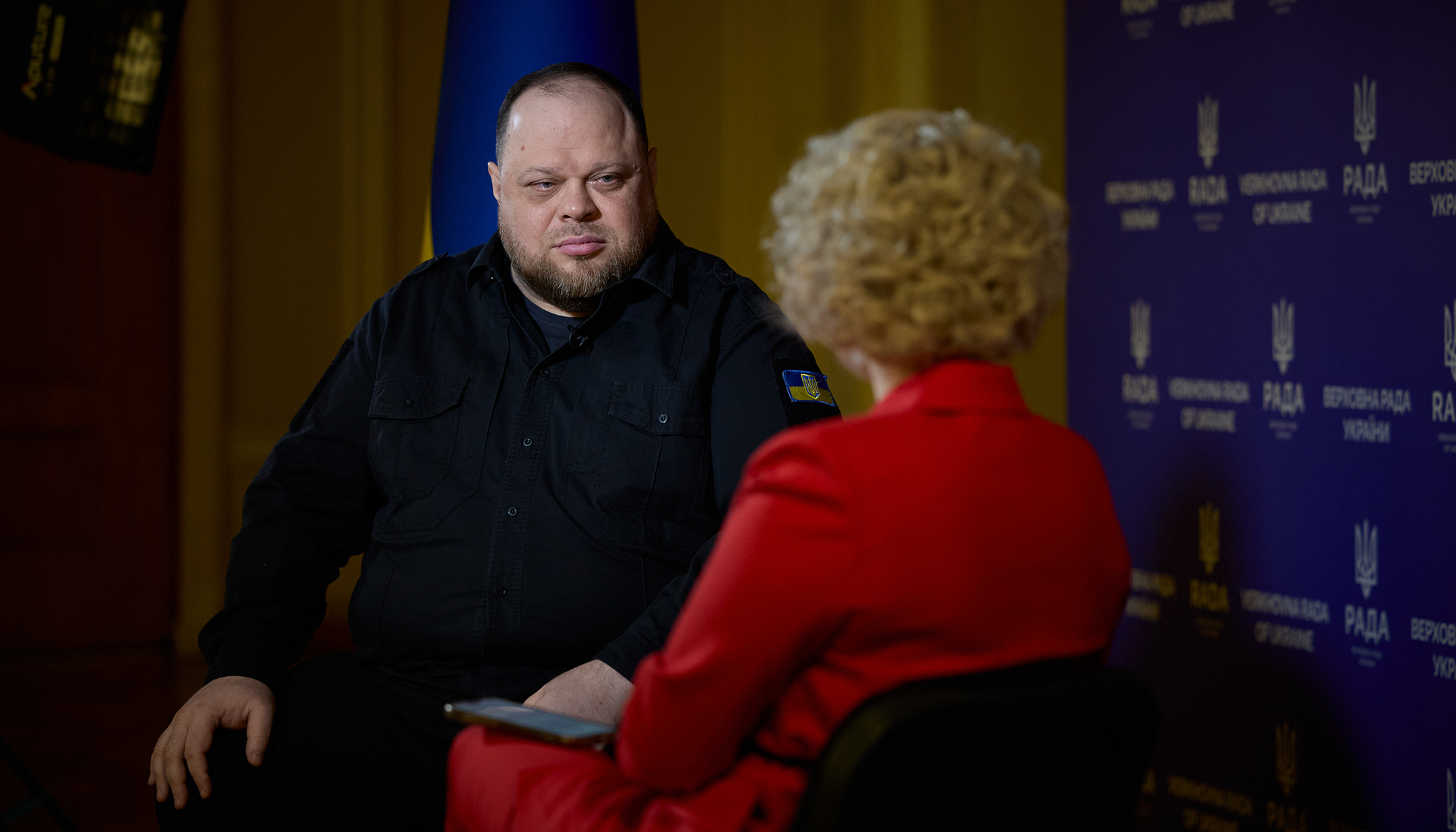
– I absolutely agree with you. Society has repeatedly seen some MPs being exposed to be involved in corruption. How many MPs have been stripped of their mandates for corrupt behavior? Is there any plan in place to toughen responsibility for offences committed by such MPs?
– If you allow, let me start from the end. Like you rightly said, there must be proof of a particular offence. Not suspicion, not accusation, but only a court decision that has entered into legal force is the basis for a MP to be stripped of mandate ahead of time and deprived of legislative power. If we look into the background of this issue, then in 2019, this parliament was the first to decide to abolish parliamentary immunity, and this was the reason why anti-corruption bodies, many of which were also created by this parliament, embarked on vigorous activities, including in relation to MPs. They no longer need to obtain permission from parliament to issue summons or commit certain actions, as was the case with the eight preceding convocations, and this is precisely what increased the number of deputies who simply began to fall into the field of view of law enforcement and anti-corruption agencies. This is also the merit of this parliament. As for how many deputies were deprived of their mandates in general during the entire period of this convocation, 54 deputies were deprived of their mandates ahead of time for various reasons: some because they went to work in the government, some because they lost Ukrainian citizenship, some due to death, others at their own request. There has been not a single deputy who has lost his mandate based on a court decision so far. This is due to the fact that the consideration in court is a lengthy process, but as soon as we receive such a decision, the deputy involved will, undoubtedly, be deprived of mandate, early stripped of powers of a people’s deputy of Ukraine. Because we act, have acted and will act within the limits established by the Constitution of Ukraine. As practice suggests, this is a very correct approach. For example, MP Medvedchuk, whom we deprived of powers of people’s deputy ahead of time, is currently suing for the restoration of his mandate. And it is only because we did not do this out of emotions, but in full conformity with the Constitution, I am calm about the future of this lawsuit in the courts. And we will do so in the future, and only within the limits and in the manner prescribed by the Constitution of Ukraine.
– Mr. Ruslan, at the beginning of the full-scale invasion, the media repeatedly reported about aides to some MPs being exposed to be working for the benefit of the aggressor state. Are any measures being taken against these MPs, in particular, to secure their integrity, most particularly in times of war?
– We have a high-security area, the Verkhovna Rada of Ukraine. And of course, we closely cooperate with all those services that maintain security here: this is the State Guard Directorate, this is the Security Service of Ukraine among other institutions. And undoubtedly, such facts happened, such facts were exposed. But again, I am a parliamentarian, not a law enforcement agency, not a judge. Where such facts are exposed, they must be investigated. Where a case is well grounded, it is transferred to court for trial, and there must be a court decision in place. Not political statements, not political outcry, but only on the basis of and in the manner prescribed by relevant court decisions. But I say it again, I fully support an approach where anyone – whether an aide to a deputy, or people’s deputy — if s/he has been found guilty in committing an illegal act, and this has been confirmed by a court decision that has entered into legal force, s/he must be subjected to criminal penalty. Because everyone who came to this chamber had taken the oath of a people’s deputy, everyone was clearly aware of the level of responsibility that is placed on each of us. Therefore, I believe that this is exactly what the response to the demand for justice raised by our people should be like.
– I remember, at one time there was an initiative about a lie detector, but for some reason it remained at the initiative level. Do you have any information about that? Is a draft law on lie detector tests being drawn up, or did it all remain at the level of initiative only and remain to be materialized?
– I do not currently have information that some action has been taken with respect to this matter. I am not a great specialist in issues of access to these means that make it possible to reveal the truth, but if their effectiveness is proven from a technical point of view, I think that the legislature will find an opportunity to get it enshrined into law, but with mandatory observance of the constitutional rights and freedoms of man and citizen.
– What initiatives are being developed to support displaced persons, military personnel, war veterans and their families?
– You know, our committees that directly deal with these matters, are working very intensively in this context. These are the Defense Committee and the Social Policy Committee. Lots of initiatives have already been materialized, including on matters that comprise the so-called veteran’s assistant status, matters of veteran’s support policy, matters of inclusiveness, matters of access to specific jobs. There are issues of when a veteran returns from war, he should be provided, first, with the adequate amount of rehabilitation treatment, and second, his integration into society should be ensured. Because in addition to this, at the level of the economy and budgetary policy, these people have access to special loan programs, to those mortgage programs that no one else has access to. Not only the government creates all the necessary preconditions to enable us to prevail in this war, but also for these people who sacrificed their lives or health, their families are empowered to take full advantage of all the benefits provided by the government. Therefore, there are a lot of such initiatives, they are very actively and in practical ways backed up by a constitutional majority in the hall of the Verkhovna Rada of Ukraine.
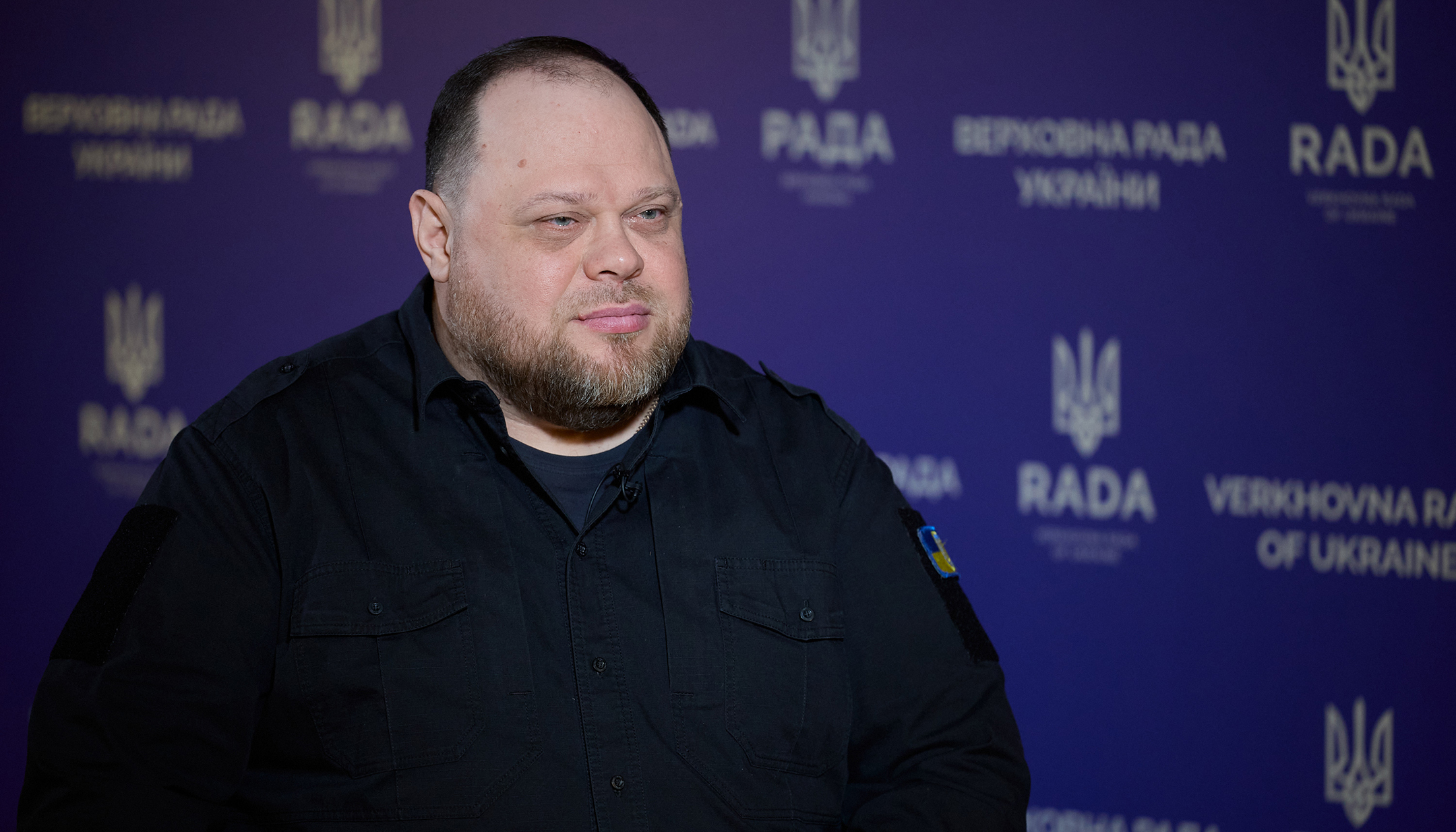
– The enemy, unfortunately, continues bombarding our peaceful cities, and people, of course, have a great interest in issues of the recovery and rebuilding of the housing stock and infrastructure and in what will happen after the war ends. How we will recover and rebuild the country? Are there any bills being developed that provide for the restoration of the housing stock and infrastructure?
– Here I would divide this into two blocks: domestic and international. In the international block, we, including the parliament, are intensively working devising a compensation mechanism, which includes several components. The first one has already been launched, which is the Registry of Damages, after which there should be set up a compensation fund, a compensation commission, which should legalize this all. And we will have a legal basis for demanding reparations from the Russian Federation after this war comes to an end. Because, in my deep conviction (I say this to all partners), winning this war is one thing, but it is very important that the factor of justice must work and then Putin and the Russian people should receive the bill for this war, that’s what justice is. We are also working on an international mechanism. And you may know that we are currently working in the context of Europe, and, on a parallel track, are creating an appropriate mechanism that will work for an international tribunal. And inside the country, we have adopted a lot of legislative changes, in particular, regarding the possibility of recording and documenting the damages that have been caused, and transferring these claims for consideration through Diia application. About a dozen laws have been adopted that give those individuals who suffered injuries, had their property destroyed or damaged, or have other issues the opportunity to register to become eligible for appropriate compensation. It is clear that we wanted this all to proceed faster, but the task of the parliament is to create a mechanism. After this is done, we, in coordination with the government, must find the money to pay compensations to these people. And then the amount of the compensations paid will be legally added to the bill that the Russian Federation will have to pay. This is the procedure the parliament has endorsed as law. And, I think, we will succeed in implementing it.
– Businesses, like we all, are surviving during the war. What initiatives are being adopted by the parliament to alleviate fiscal pressure on businesses? Because after all, the most recent initiative, which was to hike taxes to pay for the war effort, did not find a favorable response among the business community.
– War, let’s be honest, is the most expensive thing that can happen.
— I agree absolutely.
– And the amount of money that our partners have donated to us so far is a unique result of the work done by all of Ukraine’s diplomatic corps headed by the President of Ukraine. Because today, about 70 kopecks of each hryvnia spent in Ukraine is coming from our partners. And our partners are saying that, friends, you too have to do something to demonstrate you are determined. For this reason, the only such initiative that was passing through the chamber was to raise the military tax [from 1.5 percent to 5 percent]. In my opinion, it is quite logical that, in the third year of the war, one can raise the issue of the fairness of raising the military tax by 3.5 percent. I realize that this is difficult decision, but without investing in our victory, in our resistance, this war is impossible to win.
– Mr. Ruslan, those who earn the least, which is the public sector, have suffered the most, because salaries are already low, and taxes have hiked. And this at the time when salaries in the public sector are not rising for obvious reasons.
– Let’s start with the fact that today it is difficult for everyone, for all of Ukraine, and we realize that it is crucial that what is done by the State is fair to everyone. I agree that with this approach in place, there will be accusations made about the regular economy sector being affected more severely, because it pays all the taxes in full. But the objective, and this is perhaps not for the parliament, but for those institutions that deal with the black and informal economy sector, is to ensure the informal sector could move toward the formal sector. And for that reason, we simultaneously raised excise taxes on tobacco and alcohol. These taxes have been raised too, with the resulting revenues being channeled into the Armed Forces of Ukraine. And in general, I want you to understand the logic behind this move: everything that Ukraine currently earns from taxes, we have no other way to earn, the money all goes toward our defense forces. Everything that Ukraine can raise as taxes, as tariffs, as levies, as other things, it all goes toward the Ukrainian army. We therefore must understand for ourselves the reasons why we are financing the Ukrainian army. The money for armaments, for ammunition, for artillery, for provisions for our military personnel, for military salaries, this money does not come from nowhere: those fighting on the front line, you know, they are eligible for an additional payment of UAH 100,000, and those fighting on other lines get an additional UAH 30,000. Those fighting on the forward edge of the front line, they have a system of bonuses of their own. It’s all about money, about pure maths. This is the tough financial mathematics of war, but it’s an adult conversation that should be going among the society: that we either finance our own army, or will have to finance someone else’s army. There can be no third option. And that’s why there is indeed a discussion going on among the society, but it’s the mathematics of finances spent by the country. The parliament, unfortunately, has to make unpopular decisions like these.
– Another unpopular decision that has recently caused an outcry among the society is the one to raise salaries of Ukrainian MPs once again. Is this true? Would you refute or confirm this?
– The level of people’s deputies’ salary is set by the Law on the Status of People’s Deputy of Ukraine, it is set at the level relative to the minimum basic wage. At a time when salaries and wages are growing in the country, what is tied to wages and salaries is compensated for by raising the level of the deputies’ salary.
– Is that to say that the basic minimum wage has increased, and this entailed the deputy’s salary to increase too?
– As in all the society, there is an attachment to the so-called social minimums. We have several social minimums – these are the minimum basic wage, the average wage, the minimum consumer level, etc., and salaries in our public sector, in almost everything, are tied to these social minimums. When they are updated in some way, it is only this attachment that is updated and nothing else. It was a fact, indeed, that, at the beginning of 2022, for about a year and a half, if I’m not mistaken, we had a period when deputies had a salary that was two times below the level it was supposed to be by law.
– I confirm it was a fact.
– But the public have little interest in discussing this, you know, but have more interest in discussing something else.
– But let’s recall it, just for justice.
– Just for justice, we have to say this and you can check it for yourself. What is special about people’s deputies, as well as other high-ranking officials is that: everything we have can be seen from our declarations, and these declarations are all accessible to public. And through simple mathematical comparisons you can clearly understand who, where, in which way and how much is earning in this country. This is a huge plus, this transparency that we started talking about at the beginning of our conversation.
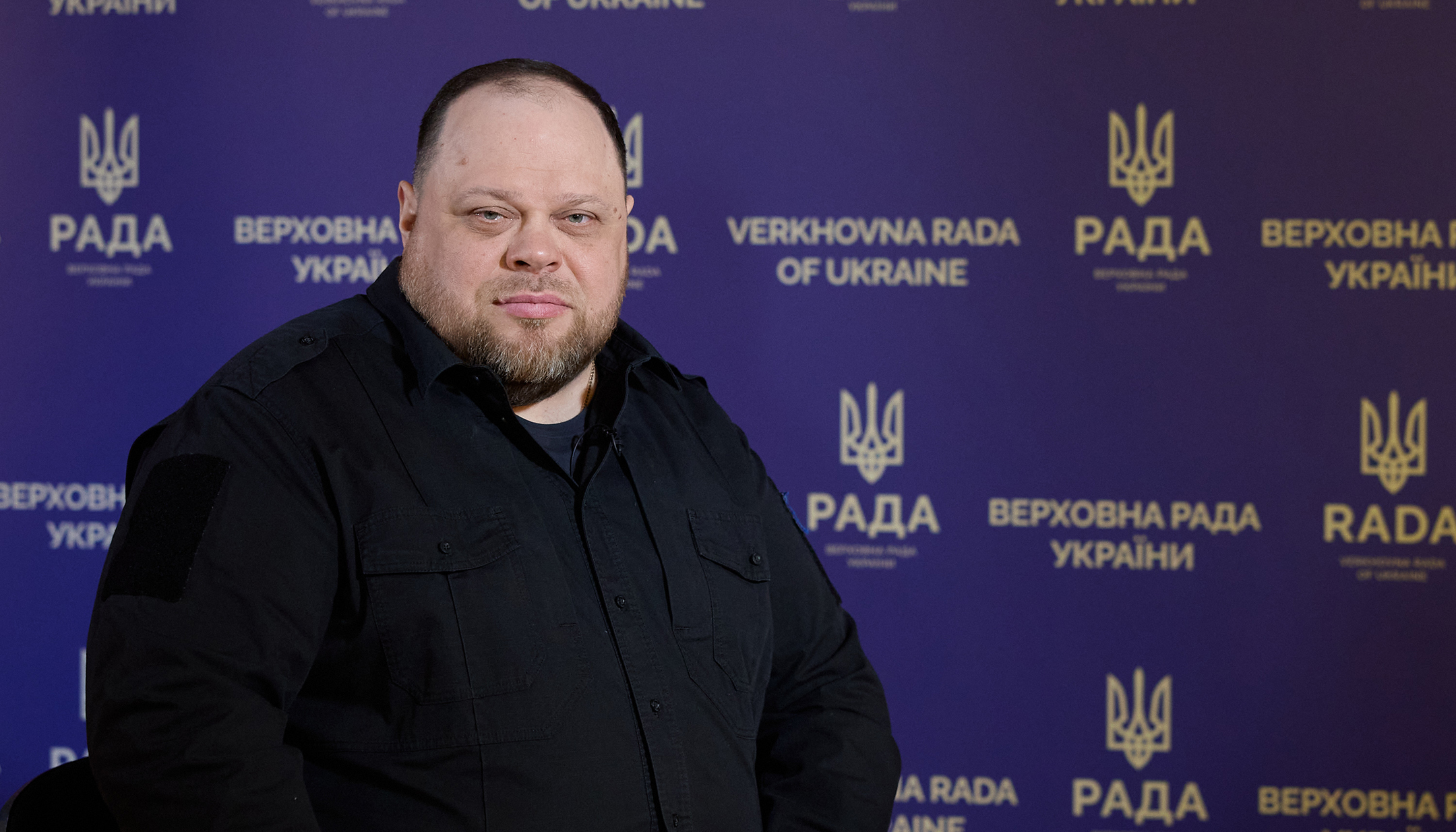
– Thank you for this frankness and for this comparison, because it really happened, and this is actual reality. It’s just that the general public are unwilling to accept it, because the public are willing to accept what it is willing to accept. Mr. Ruslan, I understand that you have answered this question many times, but nevertheless, viewers and readers will not forgive me if I don’t ask you this: how do you assess the possibility of holding parliamentary and presidential elections in 2025? Because campaign headquarters are already being prepared here, others are no longer preparing there, others are insisting on elections here, and still others don’t want these elections, and there is a war going on in the country.
– I would suggest that everyone look into the current legislation, where the Electoral Code and the Law on Martial Law clearly specify: elections are not held during martial law. Everything else is manipulation, it’s like going to the gym – political parties need to go to the gym periodically to pump up their muscles. I am convinced that the current legislation will be observed in Ukraine, that is, it is not earlier than the validity of martial law is terminated that can we talk about the start of this or that election campaign. Alongside this, it is crucial for us that these elections be, above all else, democratic and recognized by the world community. We are in for lots of different challenges that will need to be addressed. How to ensure our military can vote? This will depend on how martial law is ended. Next, how to ensure our citizens who found refuge abroad can vote? Third, how to invite international observers to oversee the elections?…
– I would add to this list internally displaced persons…
– Yes, how to ensure displaced persons can vote; so, there are lots of specific issues that need to be addressed, and it’s this parliament who should do this, because the current situation is unique in that the elections that will be held in Ukraine after the end of martial law do not fall under any of the provisions contained in our Constitution. We have scheduled or extraordinary elections, but these will be kind of “post-scheduled” elections, that is, post-war elections, and a separate legislative act will be needed to be adopted to hold them.
– Is such a legislative act being drawn up? Because there are really a lot of different nuances here. Of course, everything will depend on how this war ends. But are you already preparing any legislative acts, because we can safely predict that we will not be able to return people quickly — the displaced persons, military personnel…That is, this all will not be able to be settled within a month’s time?
– That’s definitely so, and we therefore are taking certain preparatory measures to write this legislative act. In particular, we held a meeting with the head of the Central Election Commission, because we need to understand the situation with the voter register. Secondly, we have many debatable issues that we will have to resolve later regarding the elections – what they will be like, again, depends on when and how martial law ends, whether the elections will be simultaneous – presidential, parliamentary, local – or held separately. That’s to say, there are a lot of questions here that we are not ready to answer right now, but we are working out the options, pros, cons for each issue. And we need to make sure this legislation is not adopted out of political expediency, but to suit the pragmatic reality that will have developed by the time the war comes to an end, and this reality may be different.
– In your opinion, which is better – to hold the three elections simultaneously or separately, or to hold some simultaneously and others separately?
– We simply will not be able, mathematically, to hold them all at once, because, at a minimum, the presidential elections may involve two rounds of choose-one voting. You know, if there are two rounds, then just one of the rounds can be held at once. These options have their pros and cons, both options harbor their own risks. Let me give you an example. Hypothetically, imagine everything is fine in Ukraine, all the elections are held simultaneously on one Sunday day, and all day long, when martial law is no longer in effect, Russia takes off and lands its Tu-95s – and people simply will not have the opportunity to come to the polling stations. Shall we make provisions for this situation? Certainly, we shall.
That said, I, in order to just say something definite now, must be fully convinced of what circumstances will develop at that moment. It would be inappropriate to say something just for a flashy headline to come out somewhere, someday. I am responsible for what I am saying, so I will not be ready util after the final situation is clarified. But we are working through all the options, through all the pros and cons that may arise from this or that decision that will be implemented later, embedded in this legislative act.
– A good word – embedded. Okay. Is an option of voting through the Diia app being considered?
– I don’t think it is realistic; what, unfortunately, is currently happening in the technological domain, you know, deepfakes, when even some of the most advanced means of protection have learned to be circumvented through deepfakes. This is unrealistic now, I think. We just need to understand that this can only be done where there is 300 percent guarantee that it will be technologically reliable, and society will accept it. If this is not the case, it is simply a room for manipulation, for mutual recriminations of someone seeking to impose this option, so I think we need to be frank that this issue does not lie in the legal domain, but in the domain of technology.
– I agree with you, and especially so given the recent cyberattacks, this would be a very high-risk story.
– Definitely so.
– Another urgent demand of society is to reduce the number of people’s deputies in Parliament. And, obviously enough, the current parliament is empowered to do this or not to do. Does this convocation plan for a reduction of the number of MPs in parliament?
– I would like to remind you that, on August 29, 2019, the President of Ukraine Volodymyr Zelensky proposed a bill of constitutional amendments to reduce the number of people’s deputies in the Verkhovna Rada.
– You remember the dates so perfectly!
– It’s a must-have for me as a lawyer. I submitted one of the first bills on amendments to the Constitution of Ukraine, which clearly stipulates that the number of people’s deputies should be reduced to 300 MPs. Unfortunately, the Constitutional Court in its previous formation gave a negative opinion on this bill, thereby blocking its consideration in the Verkhovna Rada. But I am deeply convinced that, undoubtedly, the issue of reducing the number of people’s deputies will arise in Ukrainian society, and not because someone loves someone or someone does not love someone, but because, objectively, the number of people in Ukraine who will be represented in a single legislative body has decreased. When there were 52 million, this was one situation, when there are much fewer people left is a different situation, and therefore the issue of representation in society should definitely be reviewed. And I think that the number of 300 is the number we can talk about, and the number that should become the basis for all the processes that will follow.
– You once noted that Ukraine needs a clear action plan for integration into the European Union. What legislative initiatives are planned to be adopted in 2025 to bring our integration into the European Union closer?
– For the first time in history, in seven waves of EU enlargement, Ukraine is the first to integrate the legislature into the negotiation process on our future accession to the European Union, and about 150 people’s deputies are currently working in negotiation groups on various different matters. I would like to remind you that there are a total of 36 sections on which we need to be integrated, including three that are each divided into six clusters. Our task, and we discussed this with the government, is to open all clusters this year and, on a parallel track, proceed on various other grounds. And when a large number of laws are sometimes adopted in parliament, someone says: what are you doing, don’t you have anything else to do? Friends, look, almost every second bill adopted is a bill on European integration. And, maybe yes, it is not hype, but it brings us closer to Europe in small steps.
– Could you name a bill of that sort, the one that comes to mind first?
– In particular, the latest one that we considered last week – on hops and hop products, things like that. It is a European integration bill, because we must comply with all the directives that exist in the European Union. Bills related to fishing may seem insignificant, but these are truly fundamental things that bring us closer, synchronize us with the EU. If the adoption of this legislation isn’t check marked, no one will accept Ukraine into the EU, there are a lot of them, 36 sections. Of course, the first and most important section is about the fundamentals, about the fundamental things that form the basis. There are more substantial things out there — the rule of law, the judiciary, electoral nuances. But there are 35 other sections, such as, for example, fishing, fisheries, agriculture, and other matters on which we also have to adopt legislative acts, without which nothing will happen, they are less interesting, they are not as hyped, but this is the routine work to be done by each committee and each MP.
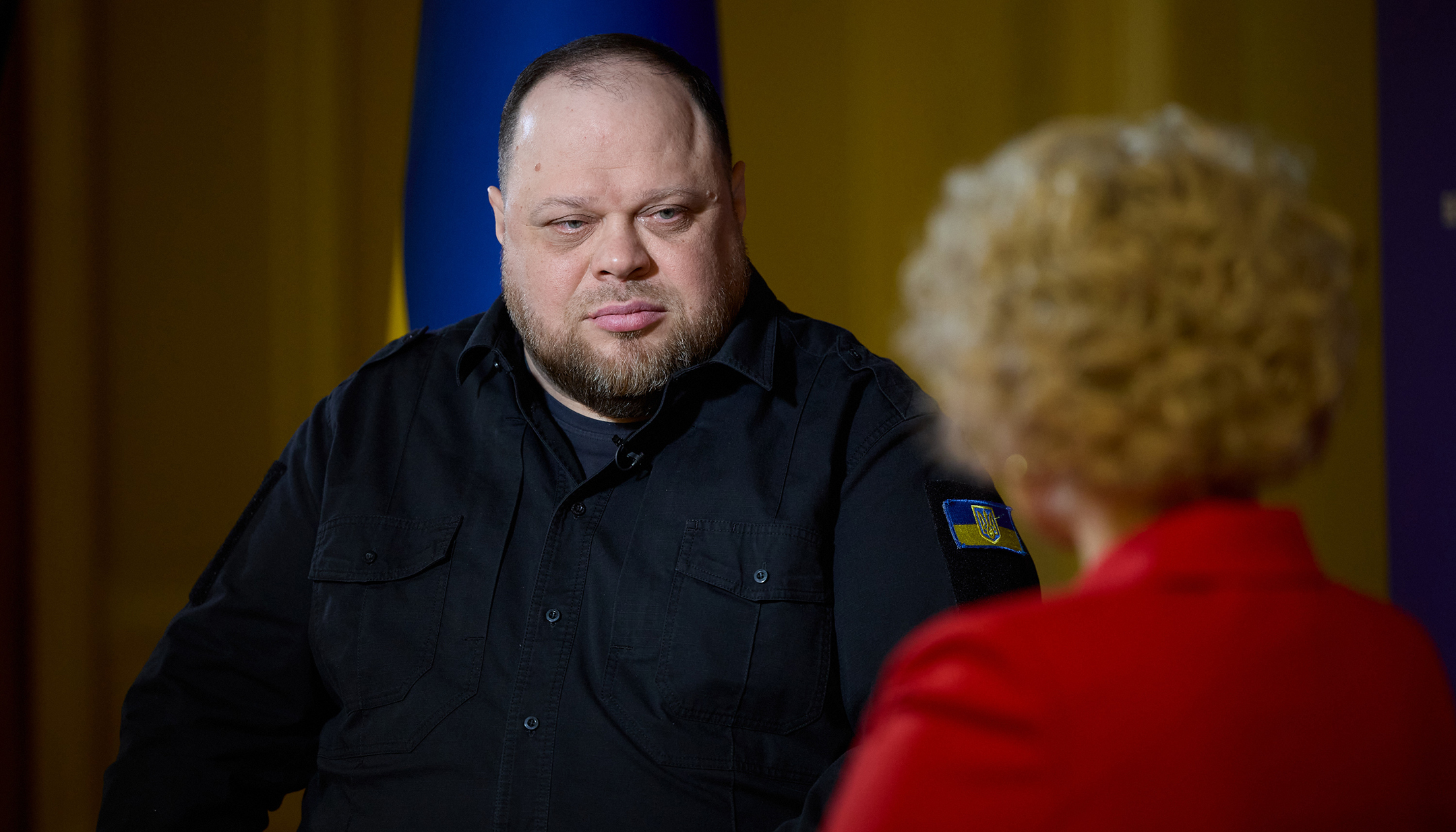
– Let me clarify for the audience: there are 36 sections, each comprised, hypothetically, of 10, 15, 20 or 30 points…
– Each contains a different number of points, but, in general, there are lots of them, indeed.
– Are we supposed to pass separate bills on each of these points?
– Yes.
– If we don’t adopt something, we will fail the exam?
– That is, we are supposed to give an answer to not what we like or not like, because it’s not Europe that is integrating into us, but we are integrating into Europe. Just yesterday we had a major organizational meeting between the European Parliament leaders and me, the chairs of Verkhovna Rada committees, we synchronized who is doing what, who has what plans, who is preparing and how. This is continuous routine work that is of little interest to the public; the public has more interest in hype things.
– Emotional.
– Yes, emotional, but the path to the European Union is not about emotions, but it is a clear, specific calculation, you must have each of the points check marked. If not, then you will not be a member of the European Union. And so, the parliament is routinely working, including on those issues that some consider insignificant. These are not insignificant issues, but a path on which every step brings us closer to the European Union.
– What legislative initiatives are planned for adoption, aimed to facilitate the receipt of assistance from international partners? Are there any plans to launch a specialized parliamentary team to oversee, distribute and manage this assistance?
– An ad-hoc investigative commission has been launched within our parliament, it has now continued its work, led by a representative of the Opposition, which is overseeing the distribution of all the military assistance flowing in to Ukraine. It has worked intensively, has reported its findings, with the results published on the Verkhovna Radar’s official website. Thus, the parliament has taken on its share of responsibility, monitoring the usage of what we receive from our partners, and this matters very much. Because I, when talking to fellow speakers from foreign countries, all the time say that the most valuable thing we gained during this war is not HIMARS, not Patriot [air defense systems], but trust in each other, mutual confidence, and we do not want to get it tarnished. It is therefore critically important for us that the Verkhovna Rada is exercising parliamentary control over what is happening in Ukraine. We all remember that there were lots of abuses committed, including at the local level, misuses of assistance from volunteers and suchlike. We must be honest with our partners, and therefore not only the parliament must work in this regard, but also law enforcement and judicial bodies, which must expose and punish those who are about to enrich themselves in dishonest ways. And war, as we all know perfectly well, throughout its history has always been a breeding ground for corrupt and deceitful people. The task of the State is to set up in place all the mechanisms necessary to ensure these people are exposed and held legally accountable.
– In the context of defense, you argued that legislative support for the defense sector is critically important for our victory. What is being done by the parliament in this regard? How does the parliament motivate domestic manufacturers of weapons and ammunition so that they feel comfortable in the conditions of war and in current realities in Ukraine?
– I will start with the budget. In fact, our budget, which the parliament has approved for the 4th year in a row, is almost entirely spent on the Armed Forces of Ukraine, its lion’s share. Alongside this, we are working intensively on the international track, and we have managed to obtain – as a result of the Czech initiative on artillery ammunition for Ukraine, the European Union’s initiative on artillery ammunition for Ukraine — we managed to obtain the Danish model, which is a partnership that enables Ukraine to secure funding from allies specifically for its domestic defense production. Support from Norway, including the support voted for in the Norwegian parliament, contains a substantial amount of financial assistance that goes directly to Ukraine. Furthermore, we, the Ukrainian parliament, have been able to adopt a number of decisions that are aimed at stimulating arms production within Ukraine. You may know that we passed lots of bills to exempt the weapons and relevant parts and components coming into Ukraine from customs duties and tariffs. Among other things, we did a comprehensive range of things at many different levels, including the introduction of “investment nannies” for those who are engaged in the IT development sector, particularly for the benefit of our defense industry. That is, a lot of things have been done to motivate our defense-industrial sector, and this is producing its results. We can now see the new products developed and manufactured here in Ukraine. My foreign counterparts, when in Ukraine, are delighted, saying that they did not expect how far we can progress. And they see this trust and invest in Ukraine’s defense industrial sector, particularly in the development of new drone warfare products, in the development of our long-range strike capabilities. I, being a member of the Supreme Commander’s Staff, can’t disclose everything, but believe me, it won’t be long before we will witness a whole new leap forward in the development of our defense industrial capacities and capabilities.
– And I, Mr. Ruslan, when I come to see our guys fighting on the front line, they tell me that NATO guidelines and methods are of little use in this war.
-This is 100 percent true.
– Is the parliament willing to consider draft legislation on demobilization?
– Regarding the bill on demobilization, my standpoint is and has always been clear and understandable: on that issue, we must rely on the higher military leadership, must not repeat the political mistake the Ukrainian Central Rada made in 1919, must not allow this to happen. The issue of fair rotation of troops, the issue of fair service leaves is of paramount importance to us, and if and when the top brass believes it expedient, only then an opportunity will arise for us to start talking about demobilization. But, as far as I know, no country at war, except for the Ukrainian People’s Republic (UNR), has ever carried out demobilization.
– Wrapping up our conversation… Everyone is currently fighting, everyone is currently serving in the Armed Forces of Ukraine franks, including individual people’s deputies and members of parliament. There are deaths, regrettably. Do you have these statistics? What do you personally feel about a people’s deputy combining work in parliament with service in the army ranks?
– In the current convocation, some two dozen people’s deputies have had a relationship to military service in one form or another. I will not reveal the names so as not to offend anyone, but it is a fact, and when people are saying that lawmakers should go fighting at war among others, we have people among ourselves who have been fighting, inter alia at the front line. To my great regret, among our parliamentary community, among the people’s deputies of the previous convocation, there are people who died in this war, and memorial plaques carrying their names have been installed in the hall of the parliament. In particular, we have a lot of people from the Verkhovna Rada Apparatus, those who have been mobilized for war, and, lamentably, there is one person who died, and his name has also been immortalized. That said, our parliament is a cross-section of society, and our parliament is taking part in both decision-making and in hostilities. And I reiterate it again, I sincerely believe that this parliament will soon turn from wartime parliament to parliament of a victorious country, I really want this to happen, as do all our people. And let it happen!
– And let it happen! Mr. Ruslan, I am grateful to you for this meaningful and interesting conversation, for your time, for your work.
– Thank you, too.
Interviewed by Khrystya Ravlyuk

